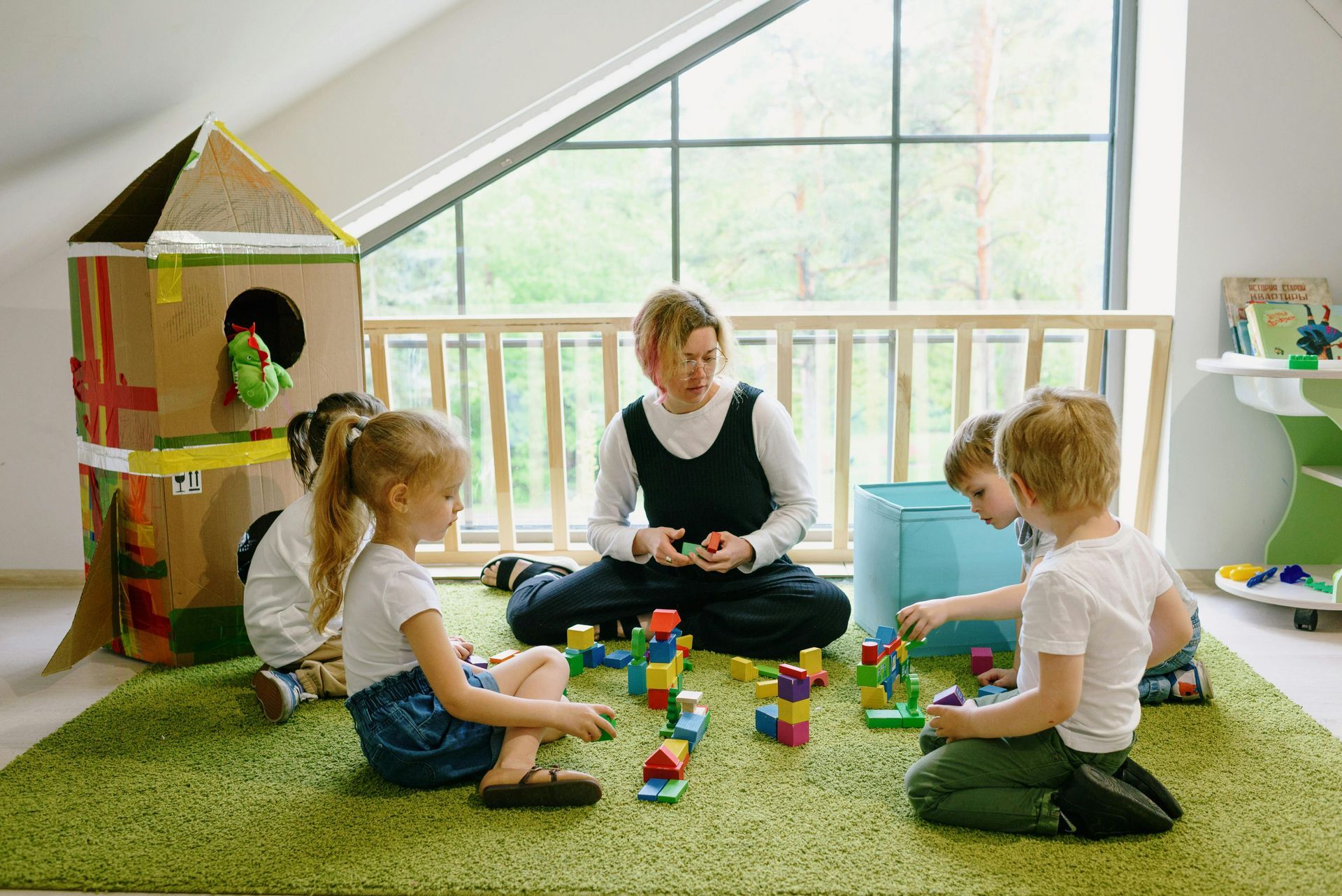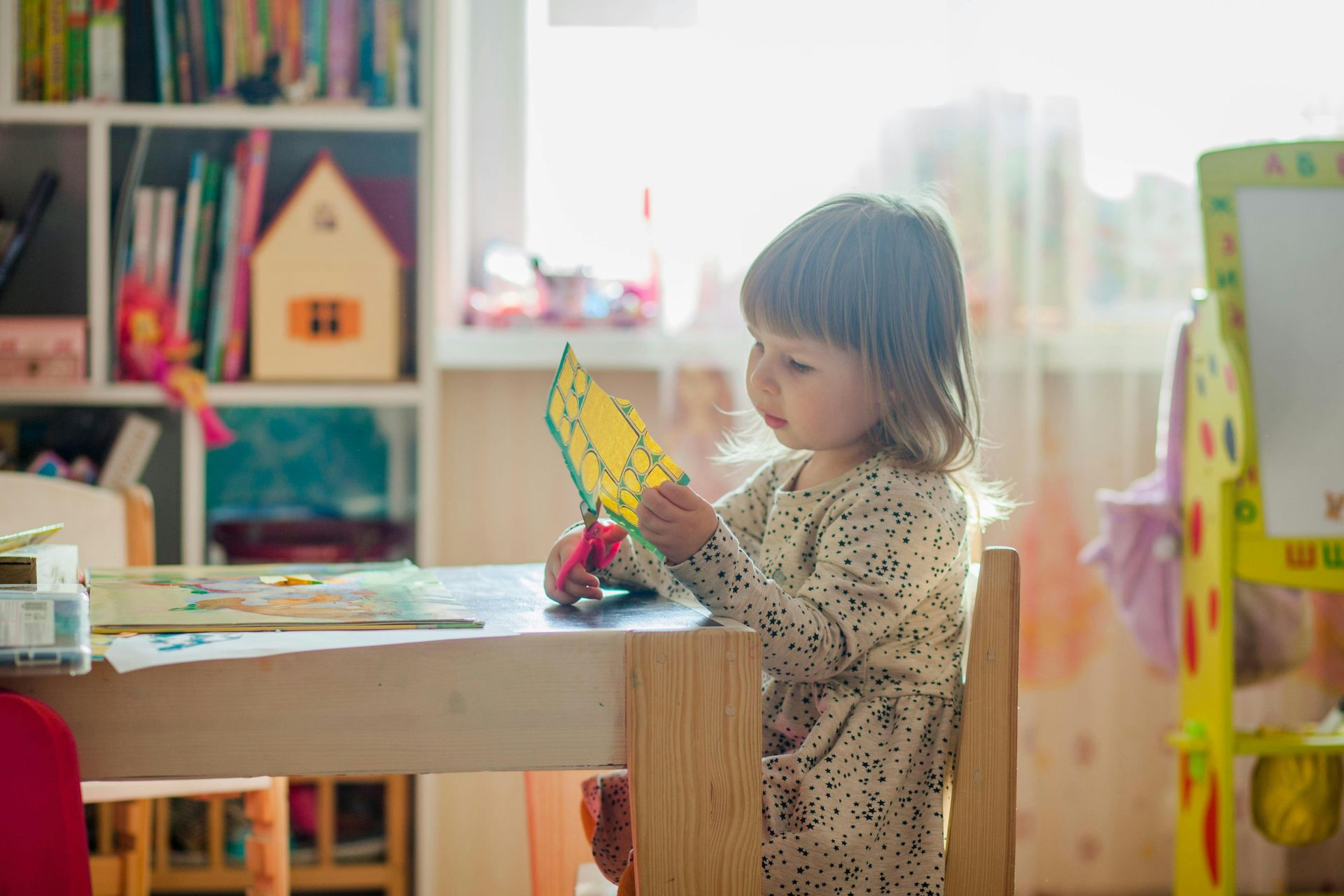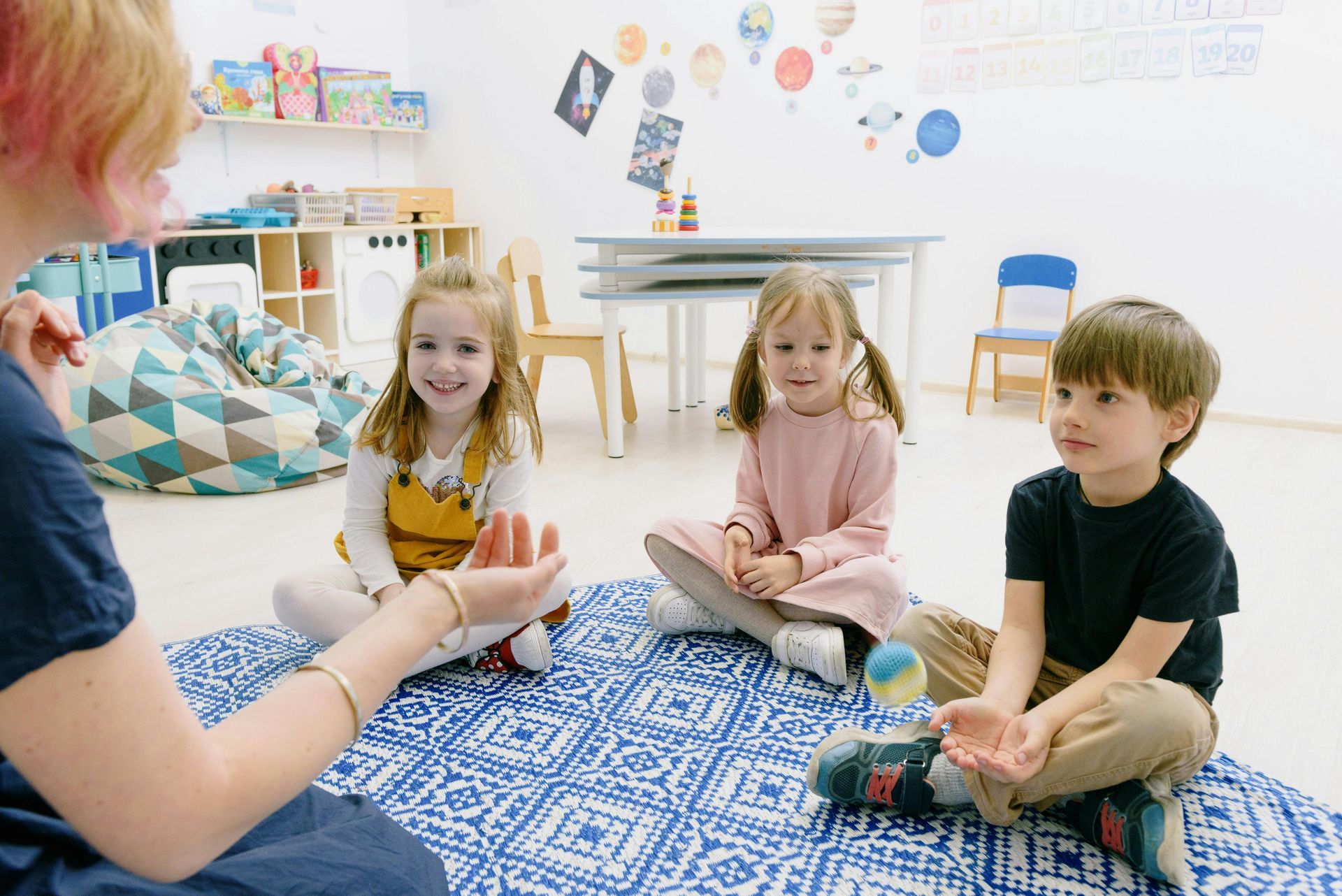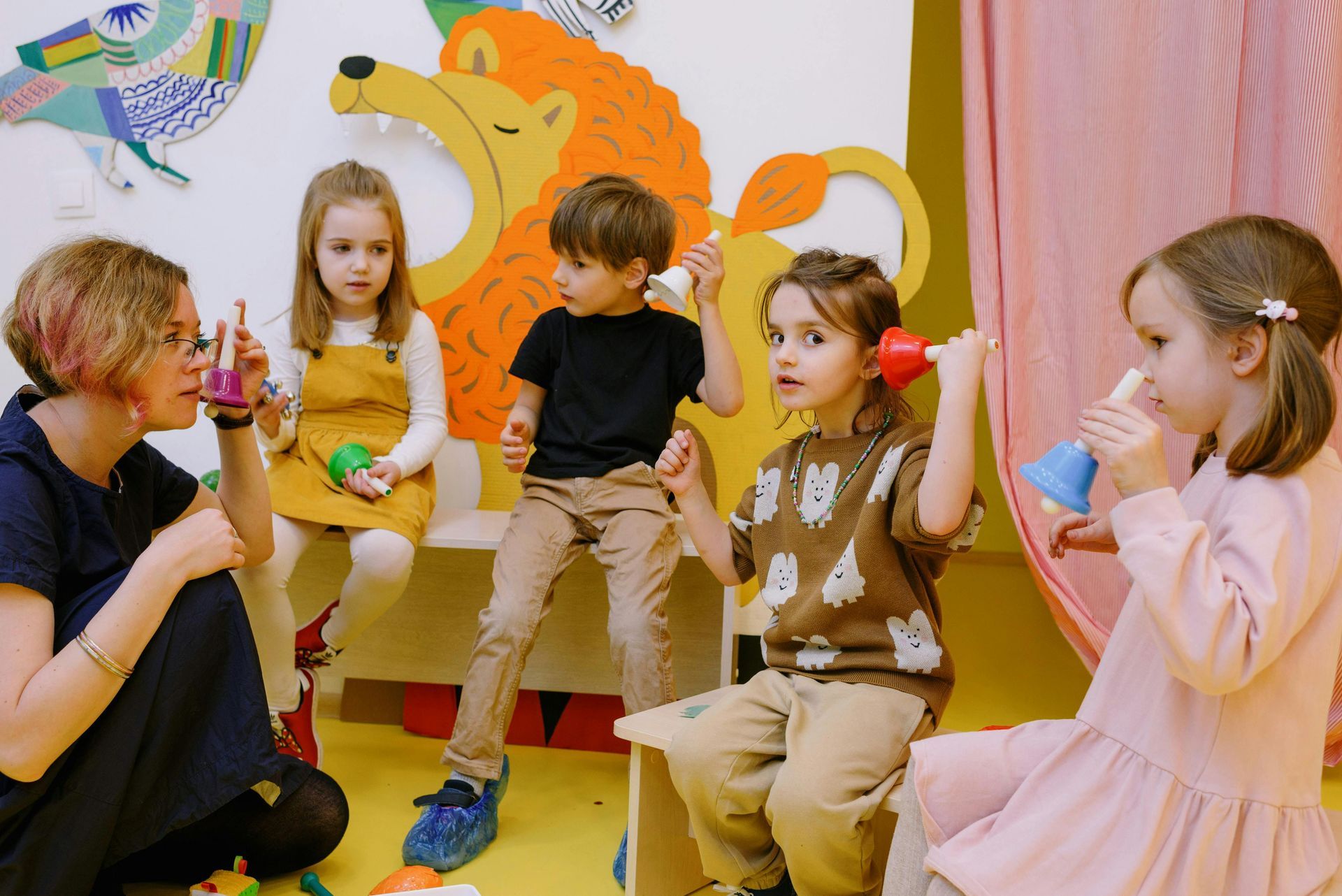Fostering Emotional Intelligence in Children Through Play

Emotional intelligence (EI) is one of the most important predictors of success in life, from forming healthy relationships to handling challenges in school and the workplace. At Playtime Academy, we believe that play is a crucial vehicle for nurturing emotional intelligence in young children. Through play, children develop skills such as empathy, self-regulation, emotional awareness, and social competence, which are foundational for their emotional and social well-being. In this blog post, we’ll explore how playtime activities foster emotional intelligence in children and how these skills benefit their growth and development.
Understanding Emotional Intelligence in Children
Emotional intelligence refers to the ability to recognize, understand, and manage one’s own emotions, as well as the ability to recognize, understand, and influence the emotions of others. For young children, developing EI means learning how to express emotions appropriately, understand others' feelings, and build positive social connections. Children with high emotional intelligence tend to have better relationships, cope with stress more effectively, and make more responsible decisions.
How Playtime Fosters Emotional Intelligence
Play provides the perfect setting for children to practice emotional intelligence. Through structured and unstructured activities, children experience a wide range of emotions and learn to process them in healthy ways.
Here's how different types of play support the development of emotional intelligence:
1. Role-Playing and Imaginative Play
Role-playing is a powerful tool for teaching empathy and understanding emotions. When children take on different characters—whether pretending to be a doctor, parent, teacher, or even an animal—they step into the shoes of others. This type of imaginative play encourages children to understand different perspectives, recognize how others might feel, and develop a sense of empathy. It also teaches children how to respond to various social situations, which builds their emotional awareness and social competence.
2. Emotional Expression Through Creative Play
Art, music, and storytelling offer children creative outlets to express their feelings. Drawing, painting, singing, and dancing allow children to externalize their emotions in ways that words sometimes cannot. By expressing themselves through creative means, children develop emotional awareness and are better able to understand and articulate their feelings. These activities also encourage emotional regulation, as children learn to control their emotions and communicate them effectively.
3. Social Play and Cooperative Games
Interacting with peers during play helps children develop social skills, which are closely tied to emotional intelligence. Cooperative games, such as building something together or playing team sports, teach children to share, take turns, and work collaboratively. They also provide opportunities to practice conflict resolution. Through these interactions, children learn how to navigate social dynamics, manage disagreements, and express their feelings appropriately in group settings.
4. Problem-Solving in Play
Many play activities, especially those that involve puzzles, challenges, or strategy games, require children to think critically and manage their emotions in the face of difficulty. When a child is unable to solve a puzzle or complete a task, they are presented with the opportunity to experience frustration and practice self-regulation. Through problem-solving, children learn how to remain calm, persist, and adjust their strategies, which is a key component of emotional intelligence.
5. Learning About Emotional Boundaries and Self-Regulation
Certain types of play, especially when they involve structured rules or waiting for turns, help children learn to manage their impulses and emotions. For instance, waiting for their turn during a game or taking turns speaking in a group helps children develop patience and control over their emotional responses. Over time, these experiences help children build self-regulation skills, which are crucial for maintaining positive relationships and managing stress.
Emotional Intelligence-Building Activities at Playtime Academy
At
Playtime Academy, we incorporate a variety of activities that promote emotional intelligence. Here are some examples of how we encourage emotional development during playtime:
1. Guided Imaginary Play
We encourage children to engage in role-playing activities that involve different emotions. For example, we might introduce scenarios where a character is sad, happy, or angry, and prompt children to express how they would feel in the same situation. This helps children identify and name emotions, which is an important step in developing emotional intelligence.
2. Emotional Storytelling
Storytelling is an excellent way to explore emotions with young children. We read books or share stories that involve characters experiencing a range of emotions, and then we discuss how those characters might be feeling and why. This activity helps children connect emotions with specific situations, which helps them develop empathy and emotional awareness.
3. Collaborative Group Projects
In group play, children collaborate on creative projects, like building structures with blocks or working on group art projects. These activities not only allow children to develop their problem-solving skills but also provide opportunities for children to learn how to communicate, share ideas, and handle conflicts in a group setting.
4. Mindfulness and Breathing Exercises
To help children regulate their emotions, we incorporate mindfulness exercises into playtime. These might include simple breathing exercises or guided relaxation techniques that encourage children to calm their minds and bodies. These activities help children develop the self-regulation skills necessary for emotional intelligence.
5. Celebrating Emotional Milestones
At
Playtime Academy, we celebrate emotional milestones in children’s development. For example, when a child successfully expresses their feelings or handles a challenging social situation, we acknowledge and celebrate their achievements. This reinforces positive emotional behaviors and encourages children to continue developing their emotional intelligence.
The Benefits of Emotional Intelligence for Children
The benefits of developing emotional intelligence are far-reaching and can have a significant impact on a child's life. Here are just a few reasons why EI is crucial for young children:
1. Improved Relationships
Children with strong emotional intelligence tend to have better social skills and form more positive relationships. They are able to understand and respond to others’ emotions, which helps them build stronger friendships and work effectively in group settings.
2. Better Academic Success
Emotional intelligence is linked to improved focus, motivation, and perseverance—qualities that contribute to academic success. Children who are emotionally intelligent are better able to regulate their emotions, manage stress, and stay engaged in learning.
3. Enhanced Self-Confidence
Children who understand and manage their emotions are more likely to feel confident in their abilities. They are better able to handle challenges and setbacks, knowing that they can cope with difficult situations and continue to grow.
4. Stronger Problem-Solving Skills
Emotionally intelligent children are more adaptable and capable of finding solutions when faced with problems. Their ability to manage frustration and think critically helps them approach challenges with a positive mindset.
5. Improved Mental Health
Developing emotional intelligence at an early age can help prevent emotional and mental health challenges later in life. Children who are able to recognize and manage their emotions are less likely to experience anxiety, depression, or social isolation as they grow older.
Learn how playtime fosters resilience and prepares children for life's challenges, while also exploring the importance of emotional intelligence in early childhood education by reading our posts on how playtime builds resilience and the importance of emotional intelligence in early childhood education.
Conclusion
Emotional intelligence is a crucial skill that can be nurtured through everyday play. At
Playtime Academy, we provide children with opportunities to explore and express their emotions in a safe and supportive environment. Through play, children learn to manage their emotions, develop empathy, and build meaningful relationships with others. By fostering emotional intelligence in young children, we are giving them the tools they need to thrive emotionally, socially, and academically throughout their lives.











